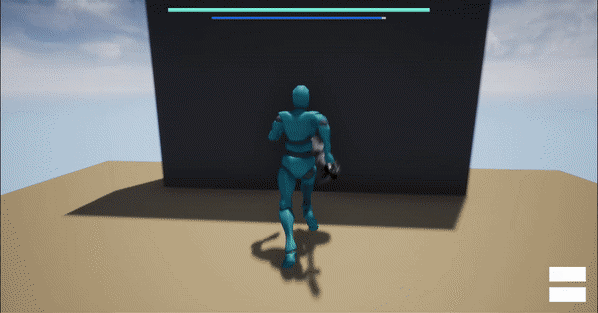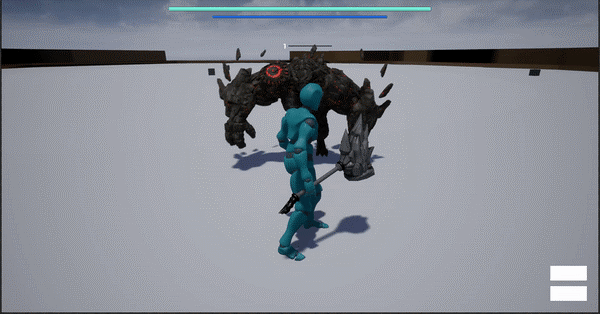Gladiator Arena
To develop my understanding of Unreal Engine, I created a small project that challenged the player to defeat various enemies in an arena.
The game involved a stamina bar. The player requires stamina to perform basic attacks and abilities. The player’s main objective is to survive waves, and these could be customised in the editor to make the experience more varied. I also added the ability to randomise enemy levels and the type of enemies that would spawn.
Most of the assets in the game were not created by myself, however, I was able to learn how to set up different Maximo character meshes with Unreal Engine's animation blend space and animation blueprint.
Project Information
Tools
-
Unreal Engine 4
Programming Language: C++
Status: Completed August 2021
Project Duration: 1 Month
Project Type: Solo Project

In Unreal Engine, I prefer using C++ as I find code easier to organise. However, blueprints are an essential part of Unreal Engine, and I often use blueprints alongside C++ programming to achieve easier customisation within the editor to avoid unnecessary compiling.


With every new wave, difficulty increases. The player had to use life pickups and their regenerating stamina effectively. The top progress bar represents the player’s health, while the one below is the player’s stamina.
I used 'BTTasks' to add unique behaviour to the different states of the enemy's behaviour tree. For example, a dodge task that called the Dodge() function in the enemy's BaseCharacter class.
All characters, including the player, would inherit from the BaseCharacter class, to avoid duplication of code and to keep the project tidy.
AI Behaviour Trees
One benefit of creating a game that involved enemies was that I learned Unreal Engine’s systems that involve AI behaviour. These include AI behaviour trees and blackboards. As the behaviour tree is more visual than C++ code, it was clear what the current state of each enemy was at any given time.

Click the image to view.










